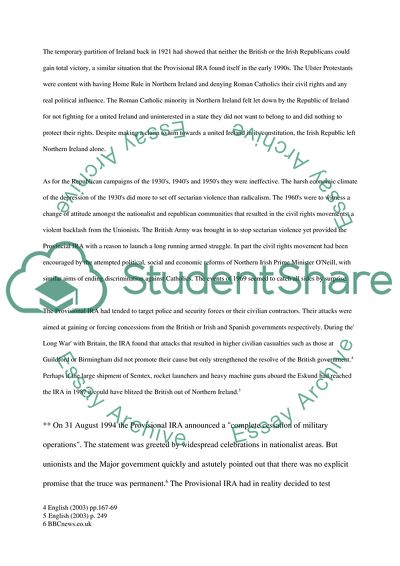Cite this document
(The IRA and the British Army Assignment Example | Topics and Well Written Essays - 1250 words, n.d.)
The IRA and the British Army Assignment Example | Topics and Well Written Essays - 1250 words. https://studentshare.org/sociology/1713559-the-ira-had-to-negotiate-peace-as-the-british-army-had-effectively-defeated-it-discuss
The IRA and the British Army Assignment Example | Topics and Well Written Essays - 1250 words. https://studentshare.org/sociology/1713559-the-ira-had-to-negotiate-peace-as-the-british-army-had-effectively-defeated-it-discuss
(The IRA and the British Army Assignment Example | Topics and Well Written Essays - 1250 Words)
The IRA and the British Army Assignment Example | Topics and Well Written Essays - 1250 Words. https://studentshare.org/sociology/1713559-the-ira-had-to-negotiate-peace-as-the-british-army-had-effectively-defeated-it-discuss.
The IRA and the British Army Assignment Example | Topics and Well Written Essays - 1250 Words. https://studentshare.org/sociology/1713559-the-ira-had-to-negotiate-peace-as-the-british-army-had-effectively-defeated-it-discuss.
“The IRA and the British Army Assignment Example | Topics and Well Written Essays - 1250 Words”. https://studentshare.org/sociology/1713559-the-ira-had-to-negotiate-peace-as-the-british-army-had-effectively-defeated-it-discuss.


